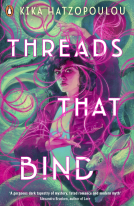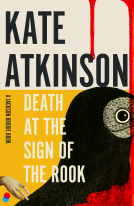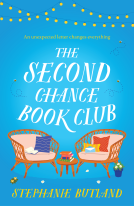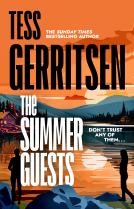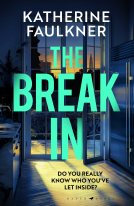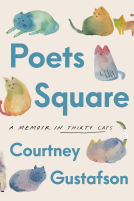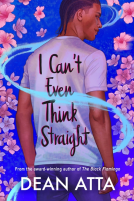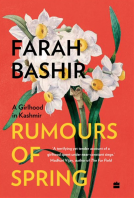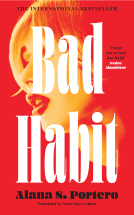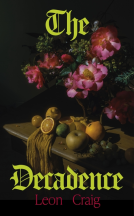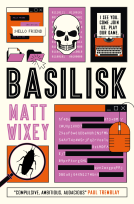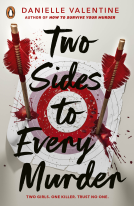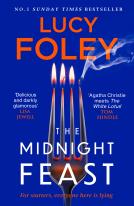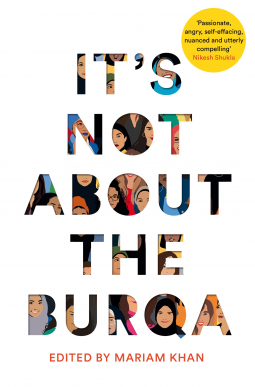
It's Not About the Burqa
Muslim Women on Faith, Feminism, Sexuality and Race
by Mariam Khan
This title was previously available on NetGalley and is now archived.
Send NetGalley books directly to your Kindle or Kindle app
1
To read on a Kindle or Kindle app, please add kindle@netgalley.com as an approved email address to receive files in your Amazon account. Click here for step-by-step instructions.
2
Also find your Kindle email address within your Amazon account, and enter it here.
Pub Date 6 Feb 2020 | Archive Date 6 Feb 2020
Pan Macmillan | Picador UK
Talking about this book? Use #ItsNotAbouttheBurqa #NetGalley. More hashtag tips!
Description
It's Not About the Burqa is an anthology of frank and insightful essays by Muslim women about the contemporary Muslim female experience.
'Passionate, angry, self-effacing, nuanced and utterly compelling in every single way' - Nikesh Shukla, editor of The Good Immigrant
When was the last time you heard a Muslim woman speak for herself without a filter?
In 2016, Mariam Khan read that David Cameron had linked the radicalization of Muslim men to the ‘traditional submissiveness’ of Muslim women. Mariam felt pretty sure she didn’t know a single Muslim woman who would describe herself that way. Why was she hearing about Muslim women from people who were neither Muslim, nor female?
Years later the state of the national discourse has deteriorated even further, and Muslim women’s voices are still pushed to the fringes – the figures leading the discussion are white and male.
Taking one of the most politicized and misused words associated with Muslim women and Islamophobia, It’s Not About the Burqa is poised to change all that. Here are voices you won’t see represented in the national news headlines: seventeen Muslim women speaking frankly about the hijab and wavering faith, about love and divorce, about feminism, queer identity, sex, and the twin threats of a disapproving community and a racist country.
With a mix of British and international women writers, from activist Mona Eltahawy's definition of a revolution to journalist and broadcaster Saima Mir telling the story of her experience of arranged marriage, from author Sufiya Ahmed on her Islamic feminist icon to playwright Afshan D'souza-Lodhi's moving piece about her relationship with her hijab, these essays are funny, warm, sometimes sad, and often angry, and each of them is a passionate declaration calling time on the oppression, the lazy stereotyping, the misogyny and the Islamophobia.
What does it mean, exactly, to be a Muslim woman in the West today? According to the media, it’s all about the burqa.
Here’s what it’s really about.
Shortlisted for Foyles Non-Fiction Book of the Year
'Engrossing . . . fascinating . . . courageous' – Observer
Advance Praise
‘Wide-ranging . . . engrossing . . . fascinating . . . these essays take a courageous and panoramic view of Muslims’
Observer
‘A landmark anthology . . . frank and engaging essays on sex and religion, mental health in the Muslim community and queer identity from an impressive selection of writers and activists’
Cosmopolitan
‘Essential reading for our times. These essays are funny, angry, hopeful, sorrowful and inspired – and will leave you feeling much the same’ Kiran Millwood Hargrave, author of The Girl of Ink and Stars
‘An intelligent and much-needed book’
Red
‘It’s about pushing past the stereotype placed on Muslim women and hearing the individuals themselves; it’s required reading’ Stylist
‘Refreshing and badass’
Metro
‘It’s Not About the Burqa is a valuable book, fulfilling its aim of giving Muslim women a space of their own’ Sarah Shaffi, The New Arab
‘Seventeen brilliantly wide-ranging essays covering everything from the rise of the sexualized Islamic influencer, to the Quran’s take on bisexuality – and of course insidious, ugly Islamophobia’
i
Available Editions
| EDITION | Other Format |
| ISBN | 9781509886425 |
| PRICE | US$19.99 (USD) |
| PAGES | 272 |
Featured Reviews
 Cassidy S, Reviewer
Cassidy S, Reviewer
Most essay collections rise up in a crescendo; voices who have been torn down by the same injustices, who are persecuted by the same experiences, forming a chorus of resistance. It's Not About the Burqa, on the other hand, found its resistance in another place entirely. It draws attention to the way Islamic women cannot be homogenised, merged or standardised; that over a billion voices cannot be condensed into one. It revelled in its heterogeneity; in each voice, so dissimilar and yet still so important and so beautiful, standing in solidarity with those who are so different from themselves.
It's Not About the Burqa is a collection of essays from seventeen Muslim women on various aspects of the lives and identities of Muslim women. The topics covered include marriage and love, toxic masculinity, sexuality, family, feminism, and faith, offering a wide and varied look at both personal stories and wider struggles and experiences.
As a non-Muslim, there were a lot of essays that were eye-opening in terms of particular issues—such as lawyer Aina Khan's Register Our Marriage campaign highlighting non-registered Islamic marriages—but also wider elements of culture and faith experienced by individuals or shared by many people. The wide variety of topics covered in the book and the different voices and experiences are important, as is the fact that some essays are very focused on personal stories whereas others make particular points the main focus. The essays critiquing feminism and particularly a 'White Feminism' that does not recognise intersectionality were another highlight, and the collection in general should be read by anyone who thinks themselves a feminist to really make people consider how they—consciously or unconsciously—see and understand the stories of Muslim women.
The collection is distinctive in that it is not fighting for one point, but specifically trying to amplify a range of voices on a range of topics. The essays are compelling and hopefully the book will help to push past stereotypes and start conversations.
A beautifully put together collection of essays by a diverse group of Muslim women on a huge variety of topics.
I'm so grateful this collection exist and I learned something from each essay.
Personal favourites for me were "On the representation of Muslims" by Nafisa Bakkar and "Substance" by Saima Mir.
*I received a free copy of this ebook from Netgalley in return for an honest review*
It's Not About the Burqa is hands-down one of the most thought-provoking and powerful pieces of non-fiction I've ever read. For those not aware, the book is a collection of essays written by Muslim women who talk about their lives, their identity, their faith, their family, societal pressures and many other things. The women who contributed to the book are from a variety of different backgrounds covering many different nationalities (and many being of dual heritage as they were born and raised in different places), different career paths, family structures and this really reflects the diversity of the Muslim community.
This book made me question my own views, question society and look at any biases I may have had without even realising. I cannot begin to unpick the whole of this book or begin to explain the stories these women tell in any coherent way that can offer true justice to their words and voices. On that basis, I encourage you that if you only read one or two non-fiction books this year you make it one of them. However, there were three messages of this book that stood out to me and that I think are important points to think about.
The first point that felt so poignant was that these women have been identified based on their faith alone. They are perceived as Muslim women first and foremost; there is no concern for their personality, their intelligence, their humour, their kindness, their talents or their life experiences. These women have been reduced to a faceless image of a woman in a burqa because that is all that is associated with women who are Muslim. The world has become blind to the talents of these women. As somebody that doesn't follow a religion, but one who entirely respects and at times envies the faith and relationship people develop with their God, I have never experienced being reduced to my faith. I have been privileged to not experience that, but it made me feel such pain that these women would not be given an opportunity because of their faith. That they were regarded or dismissed as being oppressed or unintelligent because of their faith. We have judged these women before they have been able to share their story and that is unforgiveable.
The second point that is highly connected with how these women are identified is how much these women have struggled and in many circumstances been ostracised because of their faith. They have been branded terrorist and outcasts for the actions of a minority in the Muslim community. It feels so important that we do not ignore and do not allow this behaviour to continue. It feels particularly relevant in the UK as Islamphobia is on the rise following the Brexit vote and the fact that our Prime Minister has been openly racist and Islamaphobic comparing Muslim women to letterboxes. How we can allow ourselves to be governed and led by a man that is allowed to behave in this manner without retribution is a sign of how far from equality and acceptance society is. These women talk about how the Quran gives equal rights to women, how women have rights to divorce and Islam makes that much easier for women than men. The story of Khadija, who is known to Muslims as the Mother of Believers and the Prophet's first wife was a powerful one. She was a successful businesswoman and one of the wealthiest merchants in Mecca. She was celebrated for her wealth, for her talent and she was not reliant on a man. This story is a triumph in female rights and independence and shows how Islam as a religion is not about the oppression of women.
Despite this, the most inspiring part of this book was the strength and resilience these women showed. These women are shining role models, not just to young Muslim women but for all women. These women care so deeply, they are passionate about their rights, about equality, about success. They are working to make a difference as they work to change laws, work in academia, become lawyers and engineers, raises awareness about mental health, publish books and articles as journalists and writers. These women are so much more than their faith, but it is their relationship with their faith that is so strong and beautiful to read about. Their faith has helped them through difficult times, although at times its clear they felt it caused difficulties for them too. However, the fact that these women have triumphed and become such shining symbols of female strength in the face of even greater adversity and oppression is so inspiring, and so, so moving.
I cannot begin to share how much this book has made me think, feel and want to scream in anger for these women. It was an absolutely beautiful and thought-provoking read and <i>every one</i> of these women is an absolute inspiration.
Disclaimer: Arc provided via NetGalley
 Haf D, Reviewer
Haf D, Reviewer
I loved It's Not About The Burqa, it was such an empowering and education read, a collection of utterly brilliant stories and essays by a variety of voices.
I found it incredibly interesting to read the various stories about faith, feminism, sexuality and race as told by Muslim women.
It was definitely the cover that originally caught my eye, and in particular the nacked cover of the hardback is very beautiful, representing a huge diversity of Muslim women.
I do strive to read books that will educate me or change the way I see the world and It's Not About The Burqa definitely ticked that box. I found all of the stories and essays to be inspirational and empowering.
A brilliant book that I would recommend in a heartbeat.

